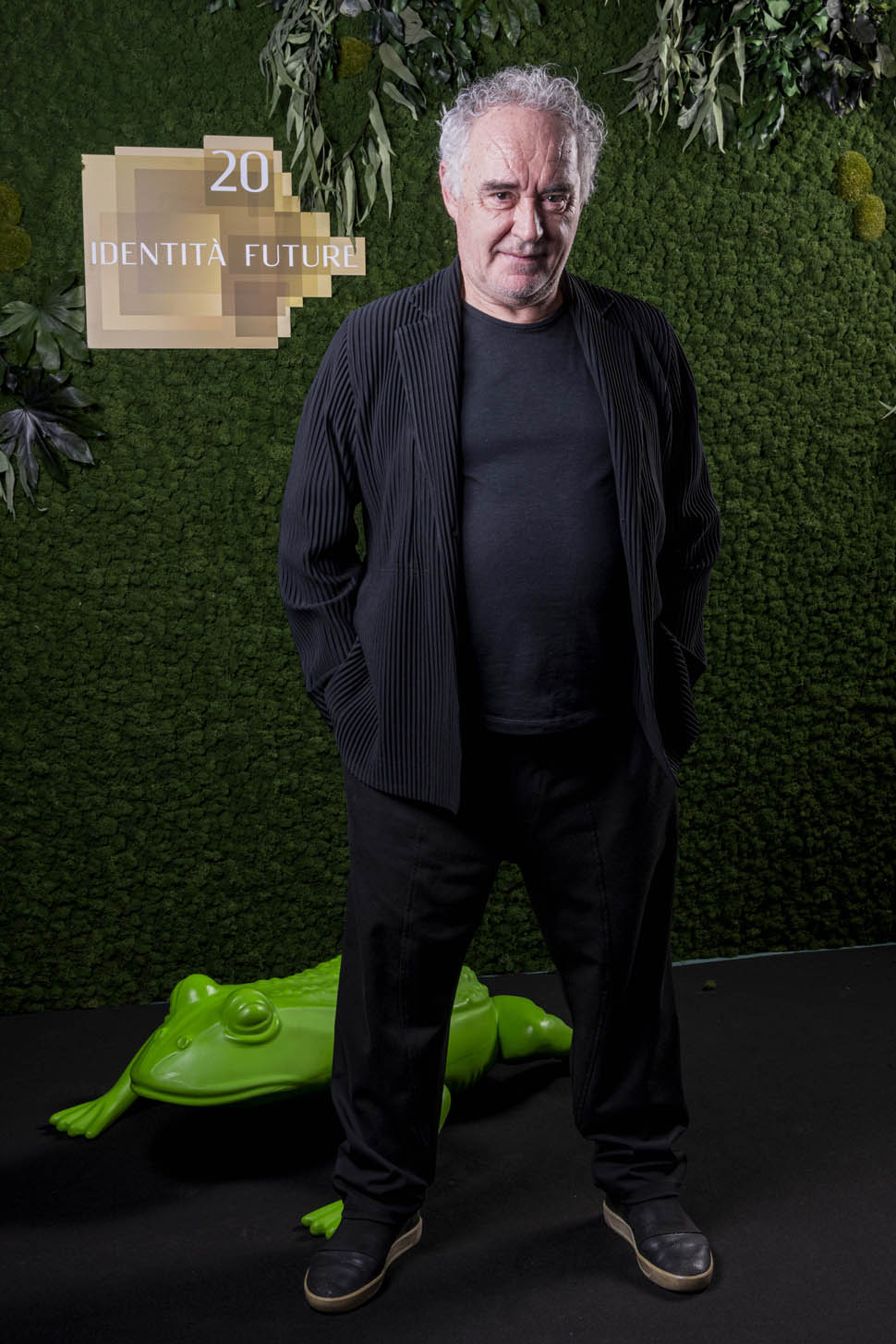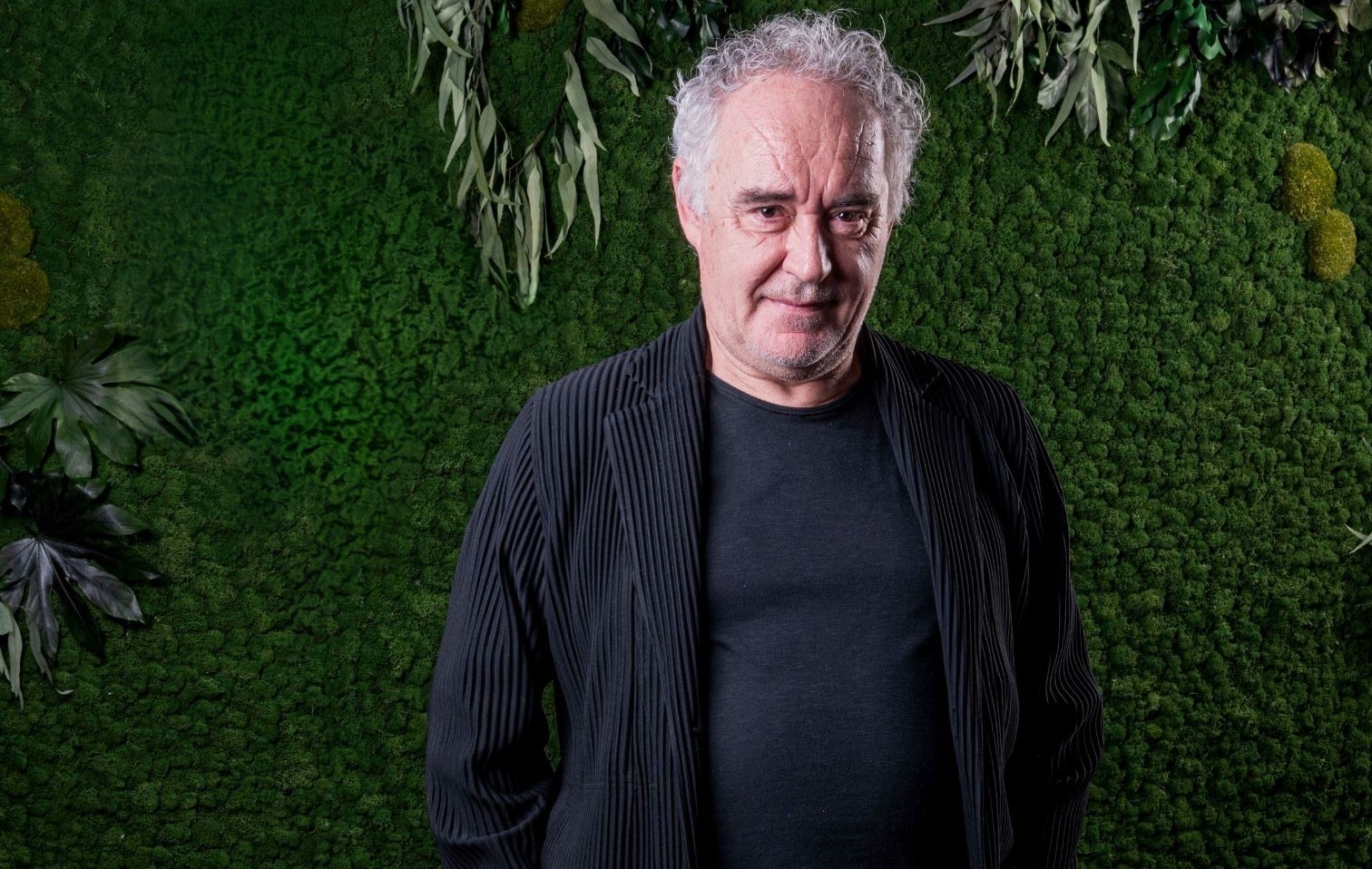Ferran Adrià speaks out on the most important issues in current gastronomy in the interview conducted by our editor Pietro Pio Pitzalis. From new generations to economic sustainability, from the “Tickets model” to elBulli's legacy to train future generations: here is the great chef's vision.
Cover: Brambilla-Serrani
Your cooking has drawn a furrow between “before” and “after,” leading to revolutionary outcomes. How did it all come about?
It's not something you do in a day, but the fruit of years of research. On the elBulli Foundation website there is a series of documentaries, including “elBulli. The story of a dream, “ in Italian: a simple click for 15 hours of episodes! At first we acted 'naively,' with less awareness. Gradually you start to strategize, and eventually you wonder what is cooking. What does it mean to go to a restaurant? There we began to question everything. For example, why do you have to serve bread in haute cuisine? I will not eat it: if I have to offer it, it will become a dish: I want creativity in the bread itself. This led to a paradigm shift, because nowadays many high-end restaurants do not give bread to eat separately, they integrate it into the creative project. This has resulted in a new strand of research with specialized lievitists. That was the influence of elBulli there in the 1950s. Hard to summarize, because it was a progressive, uninterrupted evolution. And now I continue to experiment, although not in the restaurant. Today, for example, I presented the university project I curate in Madrid on education and training. What is important to me is the issue of sustainability in a broad sense, particularly economic sustainability.
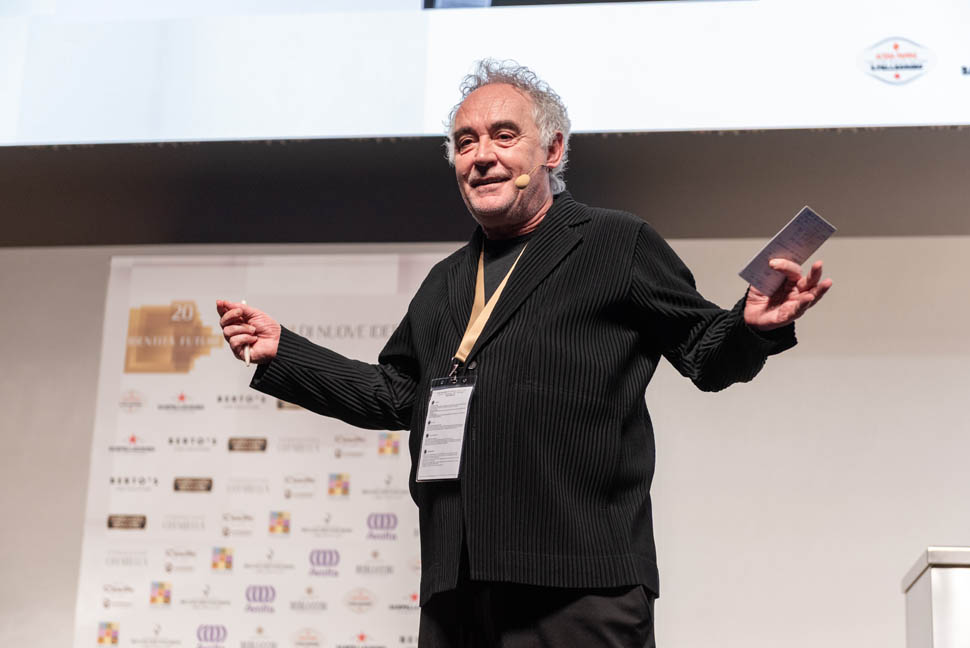
A big issue in modern catering, economic sustainability.
Absolutely, all over the world! Gourmet restaurants were born in the late 20th century, but what was the previous model based on? First of all, working 14 hours. Now we want to turn around, we are talking about eight hours. Second, the tax burden: currently there is a lot of it, you have to pay salaries, I pay my contributions and I want everyone to pay them. Third problem, inflation. The system has changed and you have to adapt. Let's also think about tourist resorts: tourism now is very important, so that for example in Barcelona a sign like elBulli benefits from 80 percent foreigners. Without foreigners in haute cuisine, it is virtually impossible to continue to make it.
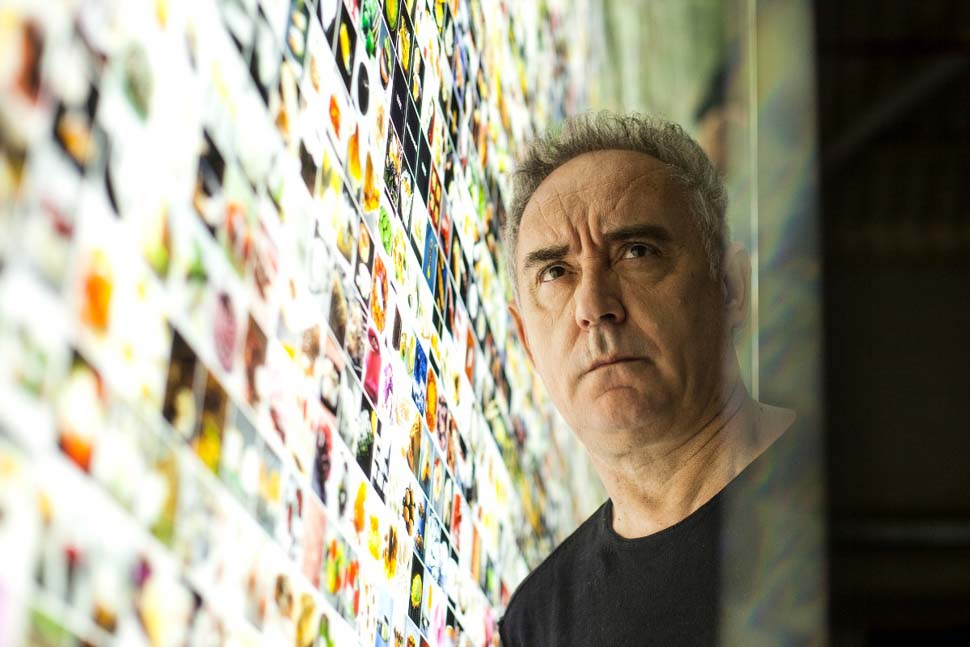
So how do you see the future scenario?
The world is changing, and it needs to be analyzed. There is no absolute truth. Every business is different. If you have a restaurant that opened 50 years ago with the bills already settled, it's not the same situation as someone who has a 1 million euro investment and still has to pay everything. That's why you need education and information in gastronomic universities. They didn't exist 20 years ago, of course, but now every country that aspires to have high culinary potential needs at least four or five major universities to develop the right know-how. And then, for vocational training, because training is indispensable. You need experienced cooks, experienced waiters, and you have to train the boys and girls in the best way. We are evolving in this respect, and I am positive about it: haute cuisine is changing model. If you analyze the 150 restaurants awarded three Michelin stars around the world, you will see that most of their business is not gourmet, but a variety of formats.
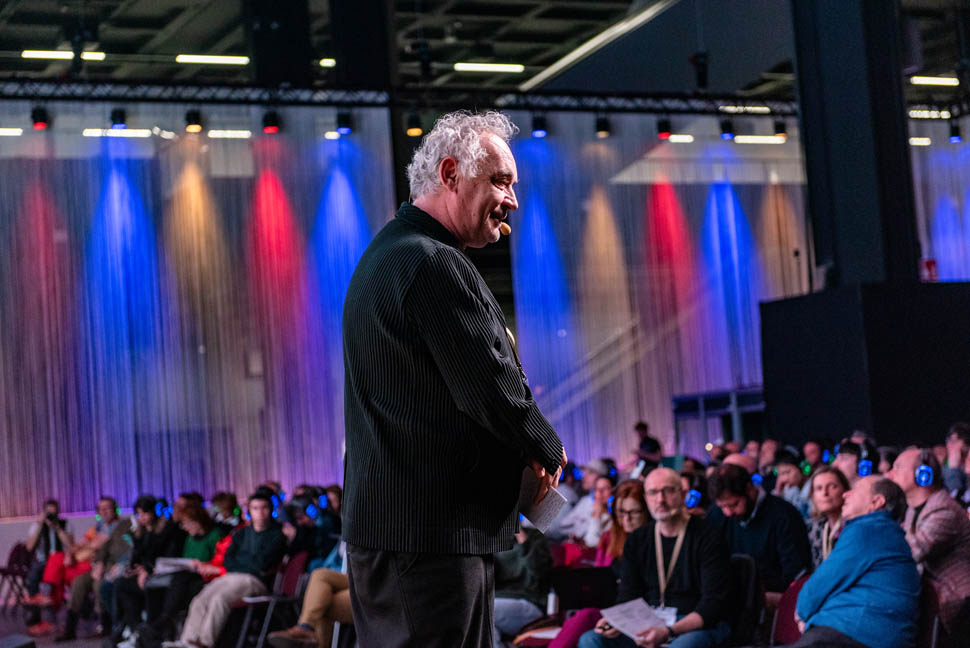
Everyone says fine dining is dead....
A lot of nonsense. When I started in the 1980s in Spain there was no three stars, today we have 16. Are you kidding me?
How do you think it will evolve?
The interesting aspect is fun, in my opinion. A restaurant has to be fun, elBulli was very fun. The “like at home” service, that's the future of haute cuisine: a casual atmosphere with fine dining. People will always want to have experiences like that. For example, I love the Louis XV: maybe you dedicate one day a year to go to a place like that, but in the day-to-day, let's say twice a month, you hang out with other gourmets and you don't want the setting to be too formal. Here, I think this will be the most important change we will see in the future. Places where we can take children, who in turn will take their children there. However, that fine dining is in crisis is nonsense; in Barcelona we have 17 million tourists, so all it takes is one 0.1 percent who are high-spending and like to eat to fill the tables. Same thing when they say the tasting menu is dead. It is not dead! It is the poorly done tasting menu that is a problem.

I mean, if you do things right and offer quality cuisine, you win in the end
Yes, and in Spain a small youth revolution is taking hold : kids want to do traditional cooking. The reason? For the past 20 years, a young chef aspired to be Ferran Adrià or Massimo Bottura, just as a beginning soccer player would want to be Messi. Now, however, boys and girls are beginning to understand that creating at high levels is a tough business-we've raised the bar so high, it's hard to get there. This same process Lima or Seoul are going through more slowly.
In fact, the bar has never been as high as it is now
That's right: we are facing a generation of cooks and chefs who want to come up with “traditional-high” cuisine. Why? Because young people today are super professional. Traditional cooking comes from mom and grandma, who were never professionals, if anything, there are some who are more experienced than others. So if you start from the traditional dish and refine it with chef methods, you improve it. That's it, when a country has a very good “traditional-elevated” cuisine and at the same time gives room for creative one, it is simply at the top.
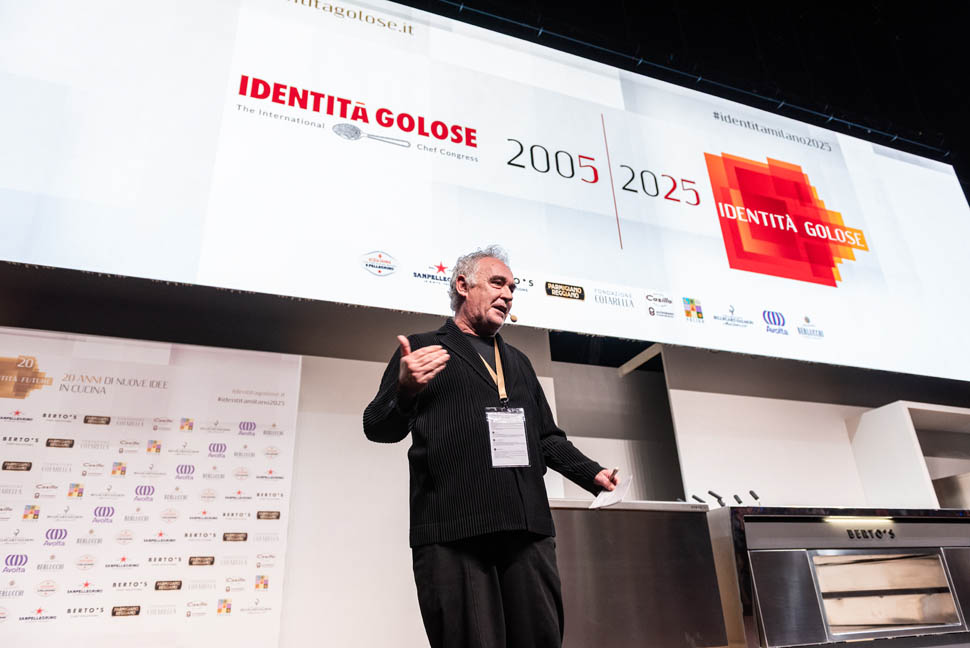
Turning to the target audience, fine dining restaurants usually have an audience with a higher age group. How do you think you can reach young people, what kind of language can you use?
You have to be pragmatic, not populist. In Spain, only 1 percent of those who work earn more than 60,000 euros, only 0.1 percent earn more than 150,000. We know that a quality restaurant requires a lot of expenses. It's a very expensive project, because it's craftsmanship. Of course, if you think of the Rolling Stones, they have a stadium full of spectators. A gourmet has 50 covers, and that's already a lot. Well, the most important thing that haute cuisine can convey is a precise attitude. There is the three-star and at the same time there are those who have an average receipt of 140 euros, which is more affordable. Tickets, for example, was a phenomenon; an incredible phenomenon, because it was the first entertaining haute cuisine format.
However, you have to “know how to do” entertainment, and in Spain you are very good at entertaining the audience. Many kids start and then get lost.
People sometimes confuse fun with banality. Instead, the intellectual sphere can accommodate fun. I think of El Bulli as I think of Mugaritz today.
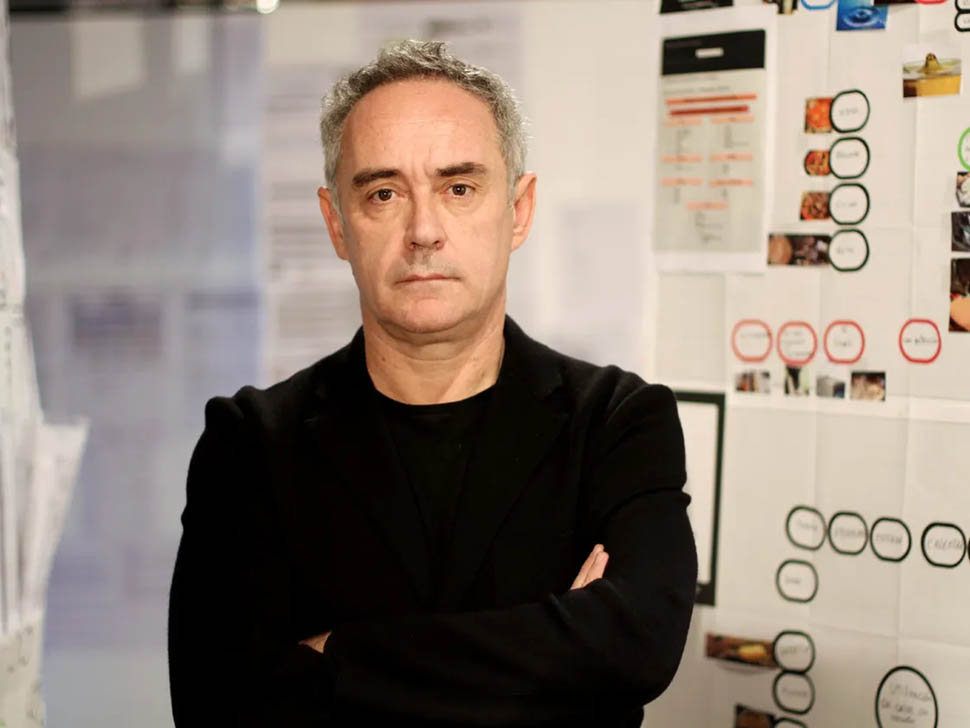
I agree
Then a lot of people don't like what I like, for goodness sake. I'm talking about intellectual enjoyment, because I enjoy it intellectually. But you always have to have fun, whether it's a pizzeria, whether it's a trattoria, whether it's a haute cuisine restaurant. Then I would like to point out that haute cuisine originated in Europe, specifically in France, but we use the term fine dining a lot, which in the end is an American word. I like America, however, you have to talk about haute cuisine, and haute cuisine was born many years ago. On the other hand, when people tell me that there is no market, I answer that you have to think in global terms: in the world maybe there are 20 or 30 million people who can go once a month to a three-star Michelin restaurant.
Perhaps in the United States this phenomenon of haute cuisine is more economically sustainable?
No, on the contrary. In the last 10 years almost no haute cuisine restaurants have opened in the US! There casual dining is more sustainable, but that is another story, we have to do another interview. Casual is fine, however, it does not seek the highest quality of product. For example, abroad Massimo Bottura looks for the best mozzarella to serve it to his guests. You have to make distinctions: casual dining costs less and has to be analyzed case by case, however, it does not offer the same quality.
And do you like the work Italy is doing?
I have been coming to Italy often for 33 years, and in my opinion this is the best time in Italian gastronomy ever. Sometimes I say, 'Be careful, that Italy is already at the level of Spain' -if we then talk about the variety of targets, it is much better. There are many young people with creative aspirations.
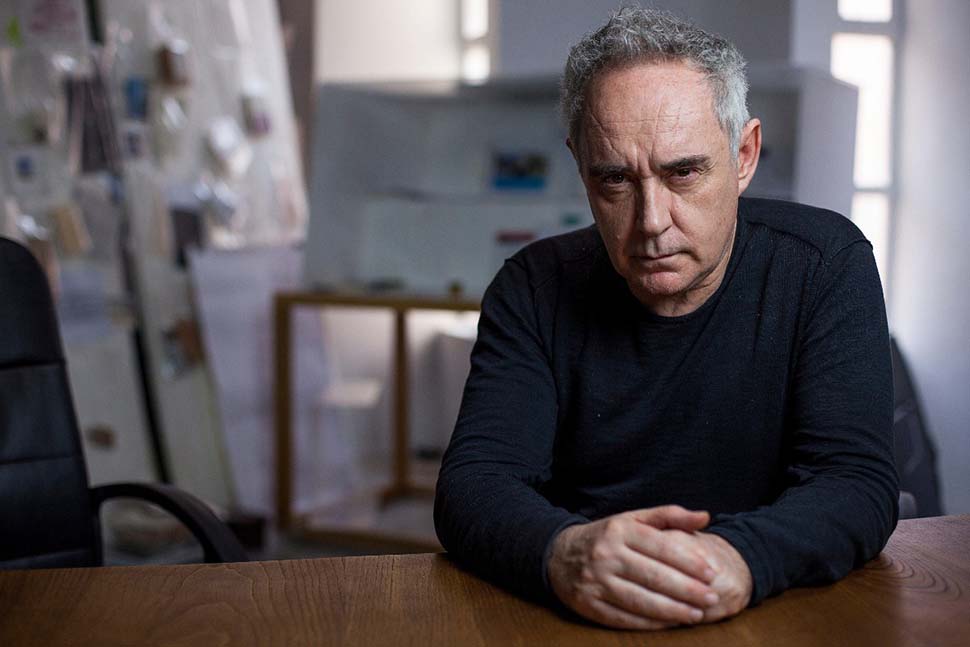
At the state level, Spain is having a good time.
Let's see in five years. Fads are one thing, trends are another thing. Kombucha, for example, how often do we order it in restaurants? It's good for those who want to drink it. Do you know how much kombucha was sold two years ago in Europe, all over Europe? 20 million euros worth of product. You have to have time and patience. The topic of fermentation is very interesting, because it makes you think about a technique that has been perfected today, but has existed since the earliest days. Changing the subject, in El Bulli when we were making foams I was called “the demon of foams.” Year '94, the whole world was saying, 'This fashion is shit. It will last three years'. Then look what happened... a world of possibilities opened up. For example, now Nordic cuisine, Peruvian cuisine, etc. are going strong, because the big family of global gastronomy has expanded. Before there was only France, after that Italy. Germany followed, then later Spain, and so on, globally.
Last question: since you're fashion, minimalism lasted three years, what's going today?
In the course of history there is never time to delve, so the research is done by companies or universities, and we need popularization. I am very optimistic, though: more scholarships and funding will come, so that a journalist can do three years studying Escoffier or me, produce a thesis on Michel Bras, on Robuchon, on Marchesi. We cannot move forward if we do not understand the past.
